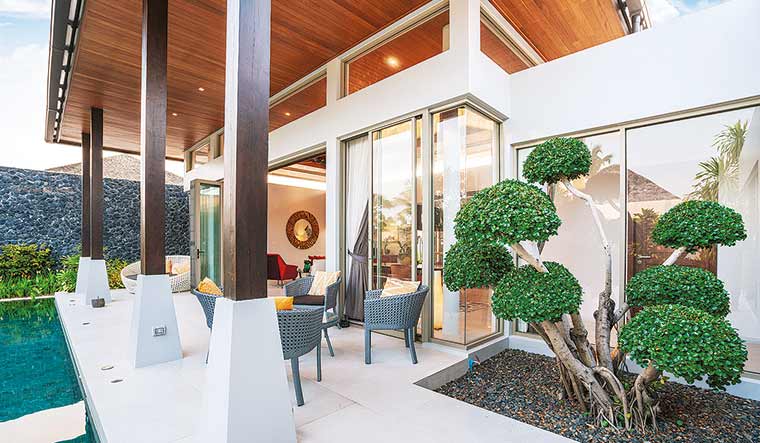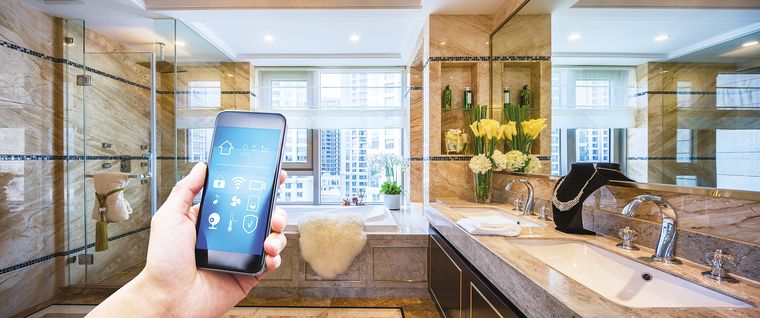In today’s world, luxury isn’t a mere symbol, but a reflection of our ethos. As our consciousness has evolved towards sustainable practices, so have our choices when it comes to living spaces. Today, more people than ever are investing in their own homes, given a surge in their wealth. In fact, according to a global wealth report, since 2000, wealth in India has grown 9.2 per cent per annum, faster than the global average of 6 per cent.
There has been a simultaneous evolution of the luxury real estate industry as well. A decade or so ago, luxury used to be synonymous with sprawling bungalows, complete with private gardens. The paucity of space has created an opportunity for vertically built luxury homes, that is luxury apartments. Some call them ‘villaments’ (villa+apartment), and some luxury residences. These luxury apartments are spacious, replete with smart technology and fittings fit for kings.
But there is more to them…
Technology has entered the veins of design sensibilities, creating a ‘smart home’ revolution. With AI and robots making major inroads into the real estate sector, facilities like voice-activated locks, smart air-purification systems, climate and temperature control, IoT devices, and more, will grow in popularity. This will also enhance the comfort and convenience of home owners while incorporating entertainment, mobility and security.
However, along with technological revolution, we also see a seamless blend of sustainable design practices to promote holistic living. It creates a sustainable and socially cohesive neighbourhood that enjoys common energy generation, and water management and allows for naturally lit spaces that enhance human engagement with nature. This is achieved by integrating energy efficiency with the design process, essential to aid livability and the overall well-being of the residents.
Upcycling is another focus area while creating harmonised living spaces. The use of natural and upcycled materials is remarkably sustainable, even as it creates beautiful structures. These materials contribute to the embodied energy consumption of homes. Use of organic materials like wood, marble and copper can uplift the ambience.
Eco-friendly practices like rainwater harvesting, waste management and adaptive reuse create a sustainable edifice for the homes, strengthening their core. Architects are increasingly following the principle of wabi-sabi, which allows the building to age gracefully as time casts its shadow on it. They also blend the indoor and outdoor areas seamlessly, thus expanding the usable area and facilitating a dynamic flow of movement.
Even the facades used are intelligent. Structures increasingly have dynamic facade which improve the aesthetic quality while augmenting functional excellence. Dynamically tinted electrochromic glass, a new-age product, gives the end user the benefit of using a glazed façade without using blinds that obstruct the exterior view and daylight ingress. It maximises natural light and cuts glare, enabling better thermal and visual comfort. Moreover, during the monsoons, the façade system drains water away from the walls.
Technology has completely transformed bathroom spaces. A contemporary touch is now pervasive in the design philosophy, while keeping bathrooms clean and clutter free. Monochrome colour schemes are vastly preferred while bold curves and angular designs give them the required edge. Apart from being elegant, they are thoroughly planned spaces which are highly ergonomic. Minimalism is the foundation on which these ‘intelligent bathrooms’ are built. They are controlled through IoT connectivity, giving you smart showers, faucets and adjustable water temperature, among other things.
Even the lighting has shifted its focus from space illumination to mood creation.
Increasingly, luxury is becoming synonymous with authentic creation. Giving owners a sense of symbiosis with nature and creating a community of people who have similar living aspirations is the new luxury being provided by real estate developers.
Kolte is project director, 24K, Kolte Patil Developers Limited.




